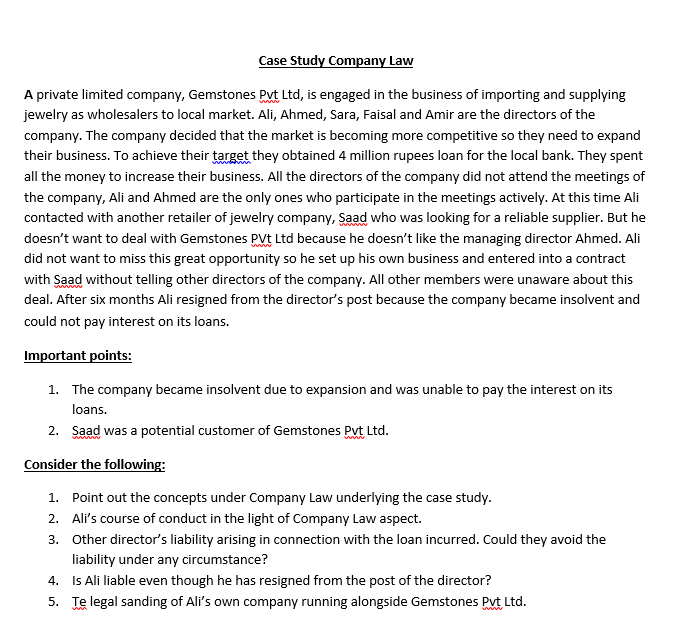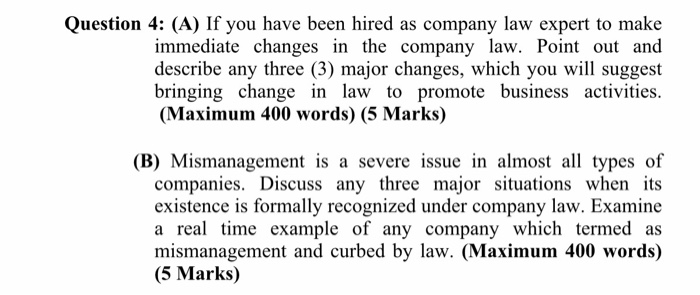




Agree or Disagree?
Discussion: "10 Ways to Create Shareholder Value" by Alfred Rappaport. What are some shareholder maximization strategies that you found particularly appealing? Also, what are some general themes decision-makers in business should be cognizant of in their attempt to maximize shareholder value?
Answer:
Part 1: Here are the 10 principles in the article
Don't manage earnings or provide earnings guidance (Rappaport, 2006)
Make strategic decisions to maximize long-term value, even if it costs short term earnings (Rappaport, 2006)
Make acquisitions that maximize long term value even if it costs short term earnings (Rappaport, 2006)
Only carry assets that maximize value (Rappaport, 2006)
Give the cash to shareholders when you can't use it to create value in the business (Rappaport, 2006)
Reward CEOs and executives for delivering long-term results (Rappaport, 2006)
Reward operational-level managers for superior multi-year value (Rappaport, 2006)
Reward middle managers and front-line employees for doing a great job on the things that they are great at (Rappaport, 2006)
Require senior executives to bear the risks of ownership that shareholders do (Rappaport, 2006)
Provide investors with information relevant to value (Rappaport, 2006)
There are a few principles that stood out to me. One underlying thought that supports principles 1-5 are to use excess capital to support the business instead of withdrawing it from the company (Rappaport, 2006). Whether that means buying higher cost equipment that has a lower total cost of ownership at the expense of reporting lower profits, or reinvesting profits into expanding into a new market: excess funds should be used for the business as opposed to leaking them out via dividends or some other vessel where they can't be used for the business anymore. Another principle that spoke well was that good performance should be rewarded (Rappaport, 2006). Organizations are nothing without the individuals that drive them, rewarding individuals for good work can keep them pushing the firm to new heights. Lastly, it makes sense that senior executives have as much skin in the game as shareholders do (Rappaport, 2006). If their compensation is tied to the performance of the company, they're likely to make better decisions regarding its operations.
Case Study Company Law A private limited company, Gemstones Put Lid, is engaged in the business of importing and supplying jewelry as wholesalers to local market. Ali, Ahmed, Sara, Faisal and Amir are the directors of the company. The company decided that the market is becoming more competitive so they need to expand their business. To achieve their target they obtained 4 million rupees loan for the local bank. They spent all the money to increase their business. All the directors of the company did not attend the meetings of the company, Ali and Ahmed are the only ones who participate in the meetings actively. At this time Ali contacted with another retailer of jewelry company, Saad who was looking for a reliable supplier. But he doesn't want to deal with Gemstones PVt Ltd because he doesn't like the managing director Ahmed. Ali did not want to miss this great opportunity so he set up his own business and entered into a contract with Saad without telling other directors of the company. All other members were unaware about this deal. After six months Ali resigned from the director's post because the company became insolvent and could not pay interest on its loans. Important points: 1. The company became insolvent due to expansion and was unable to pay the interest on its loans. 2. Saad was a potential customer of Gemstones Pvt Ltd. Consider the following: 1. Point out the concepts under Company Law underlying the case study. 2. Ali's course of conduct in the light of Company Law aspect. 3. Other director's liability arising in connection with the loan incurred. Could they avoid the liability under any circumstance? 4. Is Ali liable even though he has resigned from the post of the director? 5. Te legal sanding of Ali's own company running alongside Gemstones Pvt Ltd.Alldentify and explain the key financial, legal and regulatory influences which impact on financial statements produced and published by Hong Kong Public Limited Companies and Partnerships and Explain how the key legal and regulatory influences are relevant to the different users of financial statements.(PLZ GIVE THE REFERENCE, IF YOU TAKE THE INFORMATION FROM INTERNET IN RESPECT OF HONG KONG) B) Considering the annual accounts of sole traders, partnerships and public limited companies (plcs), identify for each of these any compulsory presentational format or publication requirement and discuss the main aspects of the regulatory framework which must be observed when reporting these accounts. PLZ WRITE IN DETAILQuestion 4: (A) If you have been hired as company law expert to make immediate changes in the companyr law. Point out and describe any three (3) major changes, which you will suggest bringing change in law to promote business activities. (Maximum 400 words} (5 Marks} [B] Mismanagement is a severe issue in almost all types of companies. Discuss any three major situations when its existence is formally recognized under company law. Examine a real time example of any company which termed as mismanagement and curbed by law. (Maximum 400 words) (5 Marks} Amy has collected Shaker-style furniture for a number of years. After she lost her job, she decided to start trading in Shaker furniture. Initially, she did all her trading on-line, but after a year decided to rent a store and start dealing directly with the public. Demand has exceeded all her expectations, and she is looking to expand her business. While she has a wealth of knowledge about Shaker furniture and is obviously very capable as a salesperson, she has no spare money to put into the business. + Amy thinks she is currently operating as a sole trader, and has heard about companies and partnerships, but does not know much about them. + a) Amy asks you to explain to her the key differences between a sole trader, a partnership and a company.+ b) Which structure would you recommend for her growing business?+ Would your recommendation change, if+ c) Amy had a son in the final year of his marketing degree and who was keen to be involved in the business once he graduated?+ + d) Amy will need to borrow $100,000 to expand the business in the near future?+Question 13 4 pts Which of the following would be an appropriate fiscal policy to deal with a high rate of inflation? Increase taxes Decrease taxes Decrease money supply O Increase government spending Question 14 14 pts
















